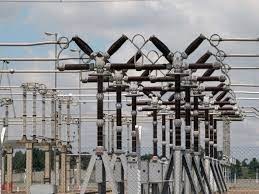The African Development Bank (AfDB) has committed $1.2million grant to kick start the Nigeria Battery Energy Storage System Feasibility Study.
Its Country Office Director-General, Dr Abdul Kamara disclosed this during the inaugural/inception workshop of the feasibility study in Abuja.
Represented by the Chief Engineer, AfDB Nigeria Country Office, Engr. Chigoziri Egeruoh, Director-General said: “This is why the bank has committed a $1.2-million grant under the Africa Energy Transition Catalyst Programme to support this feasibility study.”
He said nowhere the mission to bridge energy gap is more urgent than in Nigeria, home to an estimated 90 million people still without access to electricity.
He said if implemented through the Transmission Company of Nigeria (TCN), the project will assess grid integration, identify viable business and regulatory models to attract investment, and build the capacity needed for ownership and sustainability.
The AfDB representative explained that battery storage is no longer a luxury; it is a necessity.
He said as the grid evolves, storage offers real solutions to frequency stabilization, reserve capacity, and peak load management, among others.
He added that technology alone will not carry the day because regulatory frameworks and investment environments must evolve to scale the innovations sustainably.
He said the stakeholders work toward the ambitious goal of connecting 300 million people to electricity by 2030 under the Mission 300 initiative, battery energy storage emerged as a critical enabler.
AfDB revealed that Africa holds almost 60per cent of the world’s best solar resources, yet accounts for only two per cent of global energy storage capacity.
He said that gap presents a challenge but more importantly, an opportunity. According to him, battery storage is central to unlocking the full potential of the renewable energy resources and delivering stable, reliable power across the continent.
He said the continent is already seeing inspiring progress as in South Africa, a 1,400MWH battery storage project is supporting grid stability and solar integration.
Similarly, he said in Kenya, the Olkaria geothermal-battery hybrid is delivering reliable energy to millions.
He however stressed that now Nigeria is poised to take a bold step in that same direction.
Speaking, the Minister of Power, Adebayo Adelabu noted that the feasibility study is not just a technical exercise but also a strategic step towards further -proofing the country’s power infrastructure.
He said the power sector is undergoing reforms, although challenges persist particularly in the issues of power intermittency, limited dispatch ability of renewable, grid instability, and under-utilized energy generation.
Represented by Renewable Energy, Assistant Director, Engr. Ben Anyagwu, the minister said with the increasing penetration of solar and wind energy in the energy mix, Nigeria must address the critical challenge of storage: storing electricity when generation exceeds demand and dispatching it when needed to maintain balance and reliability.
“Battery Energy Storage System (BESS) provide the most practical and scalable solution to this challenge. They will play a pivotal role in: Enhancing grid stability and flexibility; reducing reliance on fossil -fuel-based peaking plants; enabling deeper integration of renewables into both grid -connected and off grid systems; improving power quality and system reliability, especially during voltage or frequency disturbances; and ultimately extending access to clean energy in underserved and remote areas,” he said.
TCN Managing Director, Engr. Sule Abdulaziz said for years, the challenges of the firm have been frequency fluctuations, peak load pressures, and limitations in reactive power support.
Represented by the Transmission System Operation, Executive Director, Olugbenga Ajiboye, he said the technical constraints affect every layer of value chain.
BESS he said, offer Nigeria a powerful means to address the persistent challenges, adding that for instance, the storage systems enable regulation, reserve capacity, and voltage support – directly strengthening grid performance and unlocking more efficient use of the country’s transmission assets.




